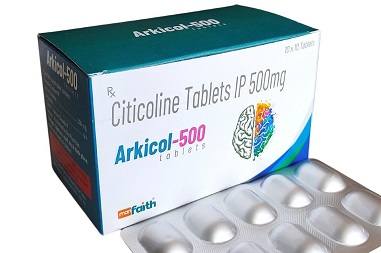COVID-19 News: Bulgarian Study Reveals Promising Neuroprotective Agents For Cognitive Impairment In Post-COVID Patients
Thailand Medical News Team Aug 20, 2023 1 year, 7 months, 4 weeks, 1 day, 2 hours, 56 minutes ago
COVID-19 News: The ongoing COVID-19 crisis, caused by the SARS-CoV-2 virus, has presented numerous challenges to healthcare systems worldwide. Beyond the immediate respiratory symptoms, evidence has been mounting that the virus can have long-lasting effects on various organ systems, including the central nervous system (CNS). In particular, post-COVID cognitive impairment has emerged as a concerning issue, affecting individuals who have recovered from acute COVID-19 infection. A new study conducted at the Psychiatry Clinic of the Military Medical Academy in Sofia, Bulgaria, sheds light on the cognitive consequences of COVID-19 and the potential benefits of neuroprotective agents in aiding recovery.
 The Study
The Study
The study involved an investigation into cognitive impairment among patients who had been hospitalized at the first psychiatric clinic in Bulgaria to treat COVID-19 cases between 2020 and 2022. One hundred and twenty patients who had recovered from acute COVID-19 infection and had no prior history of cognitive impairment participated. Of these, 23 patients (19.17%) exhibited cognitive dysfunction. The research aimed to understand the nature of cognitive impairment, its underlying mechanisms, and potential interventions for recovery.
Cognitive Impairment in Post-COVID Patients
The study's findings align with emerging evidence covered in various studies and
COVID-19 News reports that COVID-19 can lead to cognitive disturbances. Cognitive impairment, a multifaceted term encompassing various aspects of brain function, was detected among patients who had recently recovered from COVID-19. Specifically, deficits in memory retention, attention, and concentration were observed, corroborating previous studies that highlighted cognitive dysfunction as a post-COVID symptom. Additionally, evidence of mild to moderate aphasia, a language impairment, was present in patients with cortical atrophy.
Neuroimaging Insights
Neuroimaging examinations, including CT and MRI scans, provided crucial insights into the structural changes within the brains of post-COVID patients. Among the patients exhibiting cognitive impairment, only a subset showed evidence of cortical atrophy on neuroimaging. This finding underscores the complexity of cognitive impairment after COVID-19, which can arise from various mechanisms, including neuronal damage, inflammation, and vascular effects.
Neuroprotective Agents: A Path to Recovery
The study's innovative approach to treatment involved the administration of neuroprotective agents to patients with evident cortical atrophy. Citicoline, Piracetam, and Memantine were chosen based on their established neuroprotective properties and prior success in addressing cognitive deficits.
Citicoline, with its potential to stabilize neuronal membranes and aid in vascular-related cognitive issues, emerged as a promising therapeutic option.
Piracetam, known for enhancing neuroplasticity and metabolic function, showed potential in improving overall cognitive functioning.
Memantine, typically used in
Alzheimer's disease, exhibited promise in mitigating cognitive decline through its modulation of excitotoxicity.
Positive Outcomes and Implications
Following a three-month treatment regimen involving these neuroprotective agents, positive results were observed in both subjective patient reports and objective neuropsychological assessments. This suggests that these agents could play a valuable role in aiding the recovery of cognitive function in post-COVID patients, particularly those with cortical atrophy. While the sample size of the study is limited, the results point to the potential benefits of pro-cognitive medications in mitigating the cognitive consequences of COVID-19 infection.
Neurological Mechanisms of COVID-19
To better understand the neurological consequences of COVID-19, the study delved into the various mechanisms by which SARS-CoV-2 can impact the central nervous system. These mechanisms include direct infection of neurons and glial cells, disruption of cerebral blood vessels leading to strokes, systemic inflammation affecting the brain, and global ischemia resulting from respiratory failure. The study emphasizes the neurotropic nature of SARS-CoV-2 and highlights the increased risk of neurological and neuropsychiatric complications associated with COVID-19 infection.
Future Directions and Conclusions
The study's comprehensive exploration of cognitive impairment in post-COVID patients provides valuable insights into the potential long-term effects of the virus on the brain. The promising outcomes following the administration of neuroprotective agents underscore the importance of further research and clinical trials in this area. While the study's conclusions are preliminary due to the small sample size, they suggest a need for proactive cognitive assessments and interventions for post-COVID patients.
Moving forward, more extensive and controlled neuropsychological and neuroimaging studies are essential to gain a deeper understanding of cognitive disturbances in the post-COVID period. By elucidating the specific cognitive domains affected and identifying effective interventions, researchers can contribute to the development of targeted therapies and rehabilitation strategies for individuals grappling with cognitive impairments after recovering from COVID-19.
In conclusion, the Bulgarian study sheds crucial light on the cognitive consequences of COVID-19 and the potential benefits of neuroprotective agents in aiding recovery. As the world continues to grapple with the ongoing pandemic, this research serves as a stepping stone toward a better understanding of the long-term effects of COVID-19 on cognitive function and the development of effective treatment approaches.
The study findings were published in the peer reviewed journal: Diagnostics
https://www.mdpi.com/2075-4418/13/16/2703
For the latest
COVID-19 News, keep on logging to Thailand Medical News.
